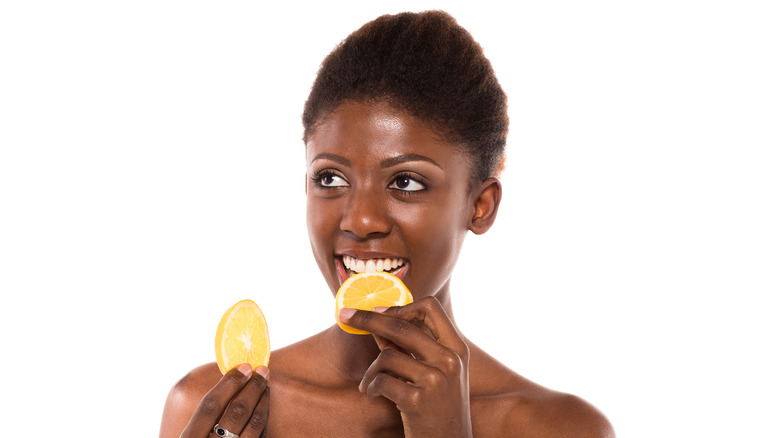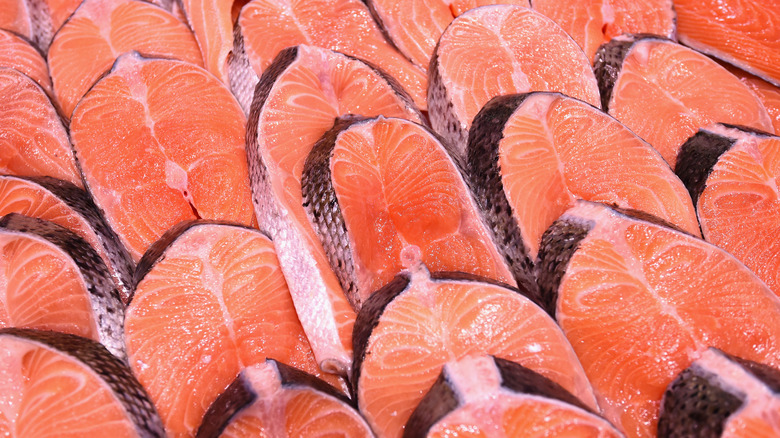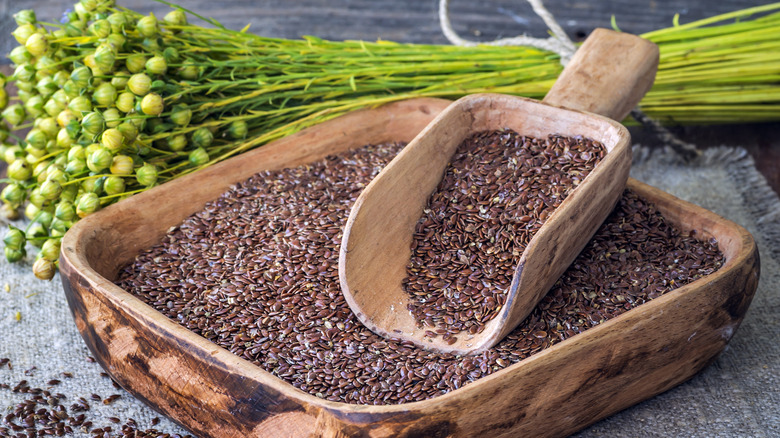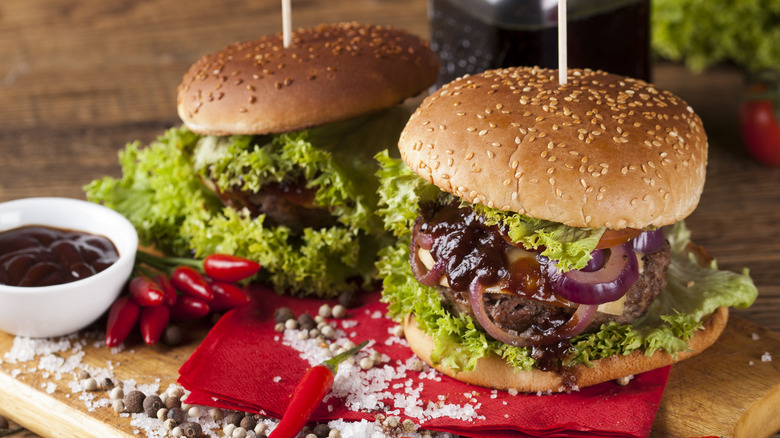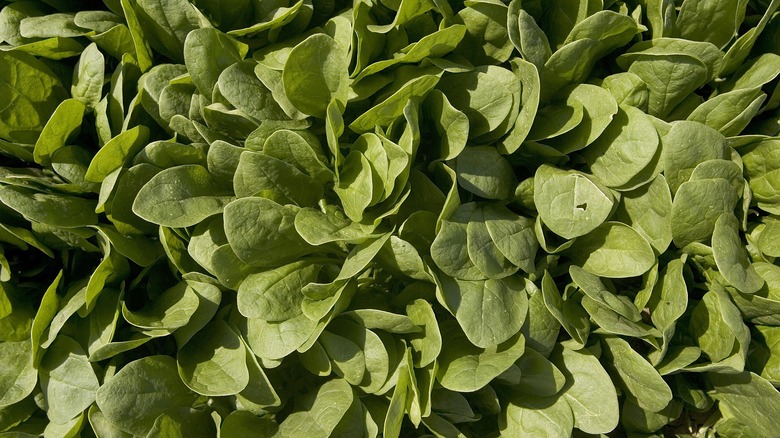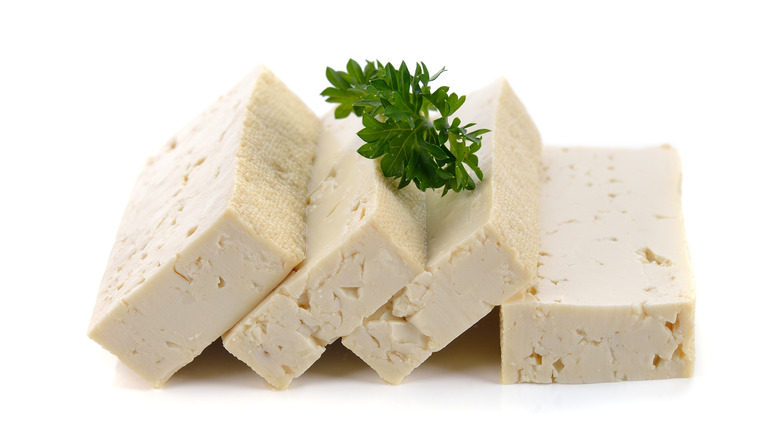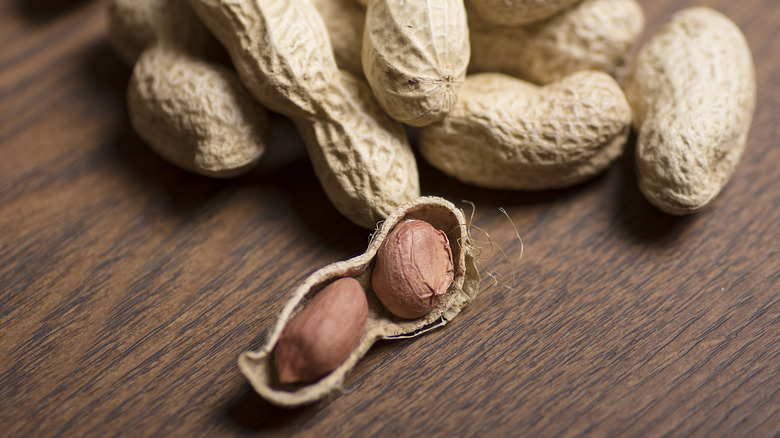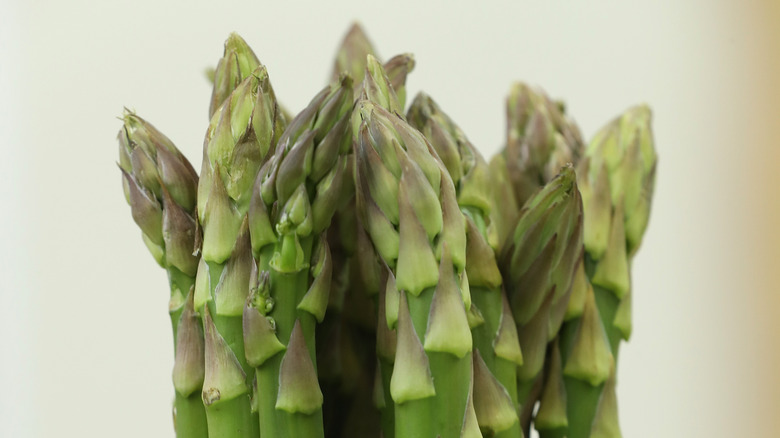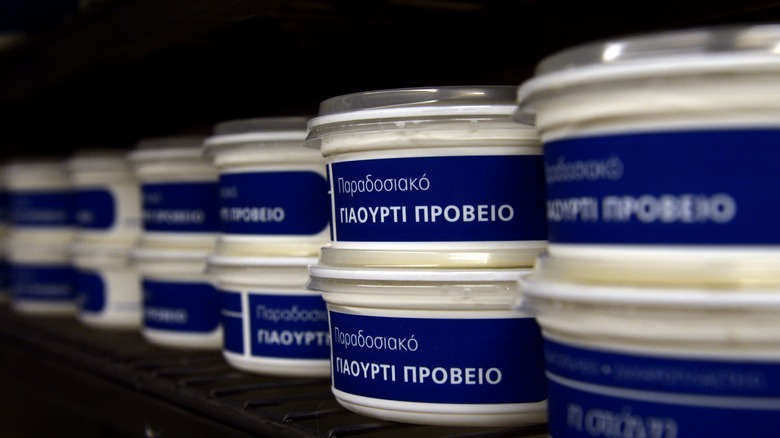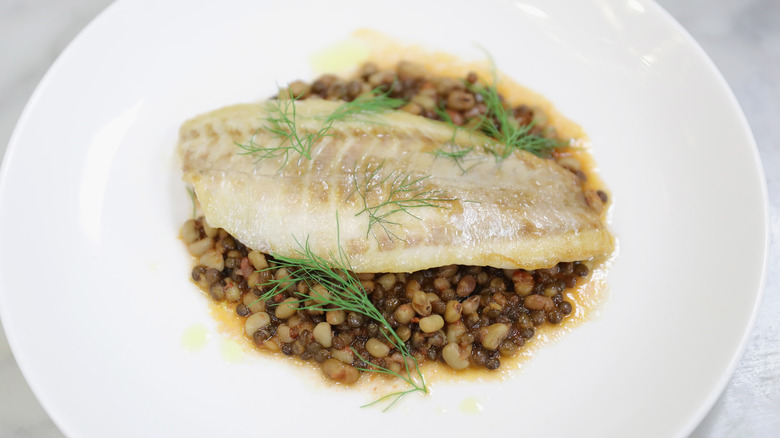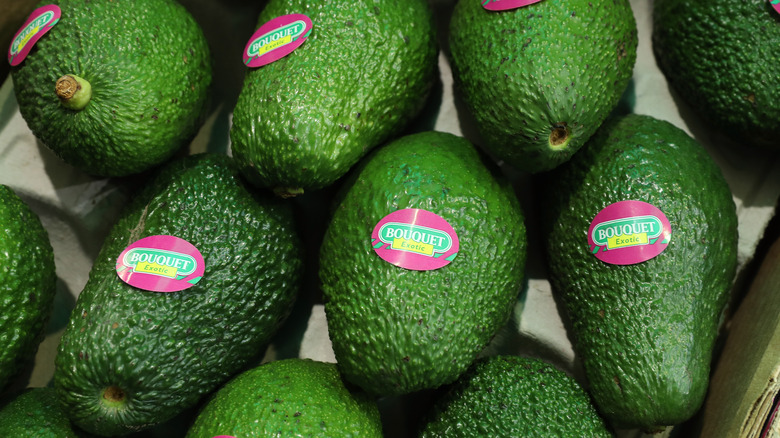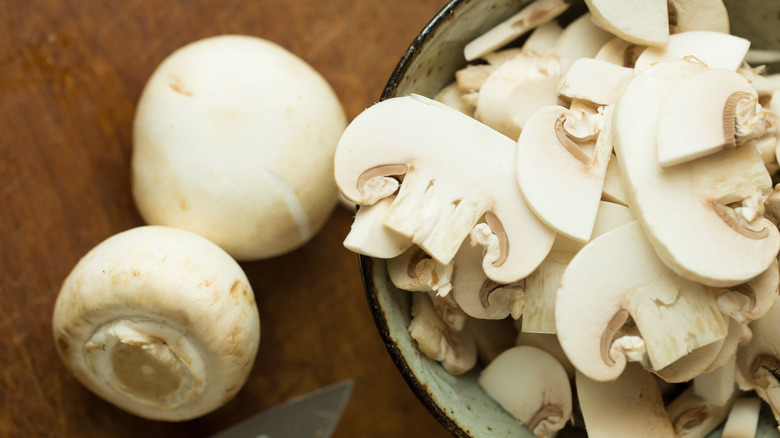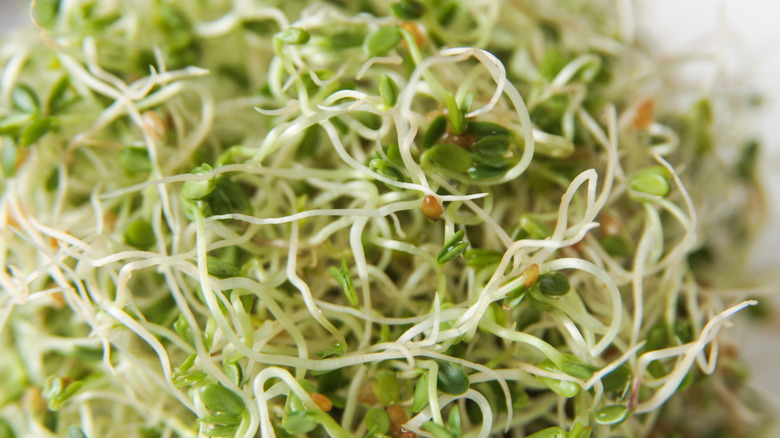Foods Dietitians Recommend Specifically For Women
We may receive a commission on purchases made from links.
Women's bodies are diverse and complex, but for the most part we have the same nutritional needs. We're all subject to the whims of our hormones, and more prone to anxiety than our male counterparts. Additionally, those of us who are willing and able to have children deal with another set of bodily challenges and changes. And the majority of us will deal with menopausal changes later in life, as well as bone strength issues and exhaustion.
The best way to care for your body, then, along with regular check-ups at the doctor and a grounded exercise routine, is to eat the foods that are best suited for your body's nutritional needs. Diet can play a huge role in our healthcare outcomes, and certain foods are vital for our wellness. I spoke to the experts, and here is a list of 12 specific foods women should be eating.
Seafood
Seafood is basically nutritional magic when it comes to your health. Rima Kleiner, a registered dietitian and blogger at Dish on Fish, told me, "When recommending foods for women, I always push for nutrient-rich options that can support a balanced diet to promote their overall health and well-being. Seafood, like shrimp, salmon, and tuna, is a delicious and healthy choice that can support a variety of health factors in women. Packed with protein and low in calories, seafood can help keep women feeling fuller longer, while boosting their hair and skin health."
And that's not all! Kleiner continued, "Seafood is also chock-full of omega-3 fatty acids that promote heart, brain, and eye health, while also reducing inflammation, which can help eliminate bloating and discomfort that occurs during a woman's menstrual cycle. Additionally, seafood is incredibly beneficial for pregnant and breastfeeding women, as omega-3s are essential for proper baby development and can also help prevent postpartum depression."
Just make sure you are consuming fish safely as mercury levels can be a concern; a great way to do that is to check the EPA guidelines.
Flaxseed meal
The humble flaxseed is a great addition to your diet because of its cancer-fighting powers. Dr. Caroline Apovian, Director of the Nutrition and Weight Management Center at the Boston Medical Center, told me, "Flaxseeds are rich with estrogen-like compounds called lignans. Studies have demonstrated that adding flaxseeds to the diet of women with breast cancer slowed the growth of tumors. As flaxseeds themselves are indigestible, I recommend my patients to add a tablespoon of meal per day into a protein smoothie." You can also add them to your breakfast cereal or into your sandwich condiments if you're not the smoothie type, or bake some into your breads and muffins.
Additional benefits include relief from constipation, improved digestive health, and lowered cholesterol levels, reducing your risk for heart disease. Plus they're cheap and available in bulk, either whole or ground, at your local health food store.
Bison
I've been cooking a lot with bison, thanks to my sister-in-law, who has a herd on her organic farm. And though it's far less popular than beef and poultry at grocery stores in most of the United States, you can usually find it with a little effort or special order it if need be. Plus it's super flavorful and beneficial to your health.
According to Dr. Apovian, "Anemia is a leading cause of fatigue, and women are more susceptible to it than men, thanks to menstruation. Lean bison meat is an excellent source of iron and protein, while staying lower in saturated fat than many other meats."
So if you find yourself feeling tired, make sure you're getting enough lean protein and iron. A bison burger is a tasty way to do it, too.
Dark leafy greens
Everyone knows that leafy greens are healthy, but they're especially so for women because of their calcium content. Registered Dietitian Lainey Younkin, owner of Lainey Younkin Nutrition, a weight-loss practice in Boston, told me, "Dark leafy greens are high in calcium, which helps protect women's bones and decreases their risk of osteoporosis." And that's one of the most important nutrients for all women, especially as we age.
Additionally, greens are packed with vitamins and minerals. Micah Grobman, a Toronto-based registered dietitian and author of A Small Part of Me: Diabetes, told me, "Not only are dark leafy greens a good source of fiber, they are also a source of calcium, vitamin K , iron, folate and antioxidants. When preparing leafy greens, be sure to add a source of vitamin C into your dish—this helps your body absorb the iron found in leafy greens."
Finally, greens are good for women who are willing and able to have children. Grobman continued, "Including dark leafy green vegetables such as chard, kale, spinach, and bok choy during reproductive years can also supply crucial folate to women."
Tofu
In spite of the fact that tofu has a lot of haters, it's actually a versatile food that absorbs flavor like a sponge—you just have to know how to cook it properly. And you can prepare it in a variety of ways depending on the texture you want to achieve, or whether you're doing a sweet or savory preparation. Once you get deft with it, you'll realize it's so much more than a meat substitute.
It also has important nutritional benefits for aging women. Dr. Apovian told me that, "Many of the unpleasant side effects of aging and perimenopause come from decreased estrogen production. Foods rich in soy proteins imitate estrogen in the body. Foods like tofu, seitan, and edamame may help to reduce hot flashes and lower risks for osteoporosis." Plus, depending on how you cook it, it's low in fat and packed full of protein.
Peanuts
Women have to be careful to eat a diet that takes care of their heart and circulatory system as heart disease is the leading cause of death for women in the United States. Peanuts may help. Sherry Coleman Collins, a registered dietitian nutritionist for the National Peanut Board, told me, "Peanuts are a healthy way to get more plant-based protein into the diet. They provide more than 30 essential nutrients, including fiber and good fats. Peanuts are heart healthy too, and cardiovascular disease is a leading cause of death among women."
If you're on the go with work, school, and/or kids, carrying some peanuts with you can help you snack smarter. Collins continued, "Peanuts and peanut butter are portable, shelf-stable foods that women can take with them everywhere, whether they're on the go as a weekend warrior, busy entrepreneurial businesswoman, or a toddler wrangling mom."
It's important to eat peanuts in moderation given the fat content. And other nuts, such as almonds and cashews, have the same benefits, though peanuts are cheaper.
Asparagus
Another green vegetable that packs a nutritional wallop is asparagus. Registered Dietitian Megan Casper, owner of Megan Casper Nutrition and writer for Nourished Bite, told me, "Asparagus is one of the vegetables highest in folate, an important vitamin which prevents anemia, helps with cell growth, and is necessary for fetal development."
And if you're prone to water retention, asparagus can likely help you fight it. Casper continued, "Not only is it good for you, but it helps you look good to! Asparagus helps to reduce bloat by flushing out extra water and acting as a prebiotic to help with digestion."
While it can be an acquired taste, once you learn how to pair it with flavors like bacon, lemon, and butter, it can be quite delicious.
Greek yogurt
I was never a huge fan of yogurt until Greek yogurt was suddenly everywhere, and I decided to give it a shot. It's thicker than most regular yogurt, and certainly more inviting than the zero fat diet yogurt I had always eaten. It's also an essential food for women.
Carrie Dennett, a Seattle-based registered dietitian nutritionist, told me, "Plain Greek yogurt is a nutritional trifecta for women, offering protein for muscle maintenance and growth, calcium for strong bones, and beneficial probiotic bacteria to support gut health." Additionally, it's fermented, and fermented foods nurture your digestive system, according to Dennett.
It's a great option for breakfast, especially if you add fresh fruit and a teaspoon of honey or so. Plus it's satiating. Dennett continued, "Many women find themselves hungry mid-morning because they don't get enough protein at breakfast—Greek yogurt is an easy antidote for that." You can also swap out your sour cream for Greek yogurt for a lower-fat but still flavorful condiment.
Lentils
A staple around the world, lentils are a must-have in your kitchen. They're easy to prepare, and have nutrients essential for your health. Registered Dietitian Micah Grobman, told me, "Lentils come in many varieties and are a source of vitamin B12, iron (45 percent of your recommended daily intake) and folate (50 percent of your recommended daily intake) in addition to fiber and protein."
Plus, they are extremely versatile and super inexpensive. Grobman continued, "They are also one of the cheapest sources of protein (per ounce of protein) that you can buy. Once cooked, lentils can be frozen and thawed for quick additions to pasta sauces, shepherd's pie, salads and even blended into smoothies. My favorite tip is that you can replace up to 50 percent of the butter in your baking with pureed lentils!"
They can be intimidating at first if you're not much of a chef, but if you have a pot and water, there are tons of possibilities.
Avocados
Avocados are perhaps the perfect food. They're delicious, for one, and completely natural. They also contain healthy fat that all women need for optimal circulatory health.
Grace Derocha, a registered dietitian, certified diabetes educator, and certified health coach at Blue Cross Blue Shield of Michigan, told me, "Avocados are full of monounsaturated fats (MUFAs). These MUFAs help to increase heart healthy fats, HDLs, to help improve cholesterol levels and fight heart disease and arteriosclerosis." Additionally, the fat in avocados is also good for your skin and hair.
And that's not all. Avocados are rich in potassium and vitamin K, and contain lutein, which is good for your eyes. Like any foods that contain fat, they are best consumed in moderation.
Mushrooms
Portobello. Chanterelle. Morel. Porcini. Who knew that fungi could be so tasty? Mushrooms all have unique flavor and texture, as well as essential Vitamin D. Registered Dietitian Kameo Snyder told me, "Mushrooms are the only plant that contains Vitamin D, (the 'shortfall' nutrient identified in the 2015-2020 Dietary Guidelines) and when button mushrooms are placed in direct sunlight for 15 minutes vitamin D content is increased by 25 percent or 150 IUs." So you literally can make them even healthier by giving them a little sun exposure!
And Vitamin D does some good stuff for your body. Snyder continued, "Vitamin D helps the body absorb calcium, essential for pre- and post-menopausal women and consuming one cup of mushrooms daily can boost immune response and reduce inflammation that advances the aging process."
This is all the more reason to chomp down on a juicy portobello burger, or throw some sliced button mushrooms into your omelette.
Sprouts
Who knew such a tiny plant could be chock-full of nutrients you need? If you needed a reason to add sprouts to your sandwich for a crunch factor, there are many.
Snyder told me, "Sprouts are natural metabolic boosters and digestive cleansers essential for pre- and post-menopausal women. Bean, broccoli, alfalfa, you name it, sprouts are packed with brain boosting amino acids and dietary fiber, and are loaded with vitamins and minerals that boost energy, reduce blood pressure, prevent cancer development, and help control weight."
You can grow them on your own or purchase them at your local market. Just be aware of potential food safety issues and follow food safety recommendations.
Eating for wellness
Being cognizant of your body's nutritional needs is the first step in maintaining your personal health and wellness. Eating the right foods can ensure that you feel strong, energetic, and optimistic, as well as keep you in your best shape. So take stock of what's in your kitchen and set yourself up for personal success. And talk to your doctor or dietitian to find out exactly what foods are the best for you.
